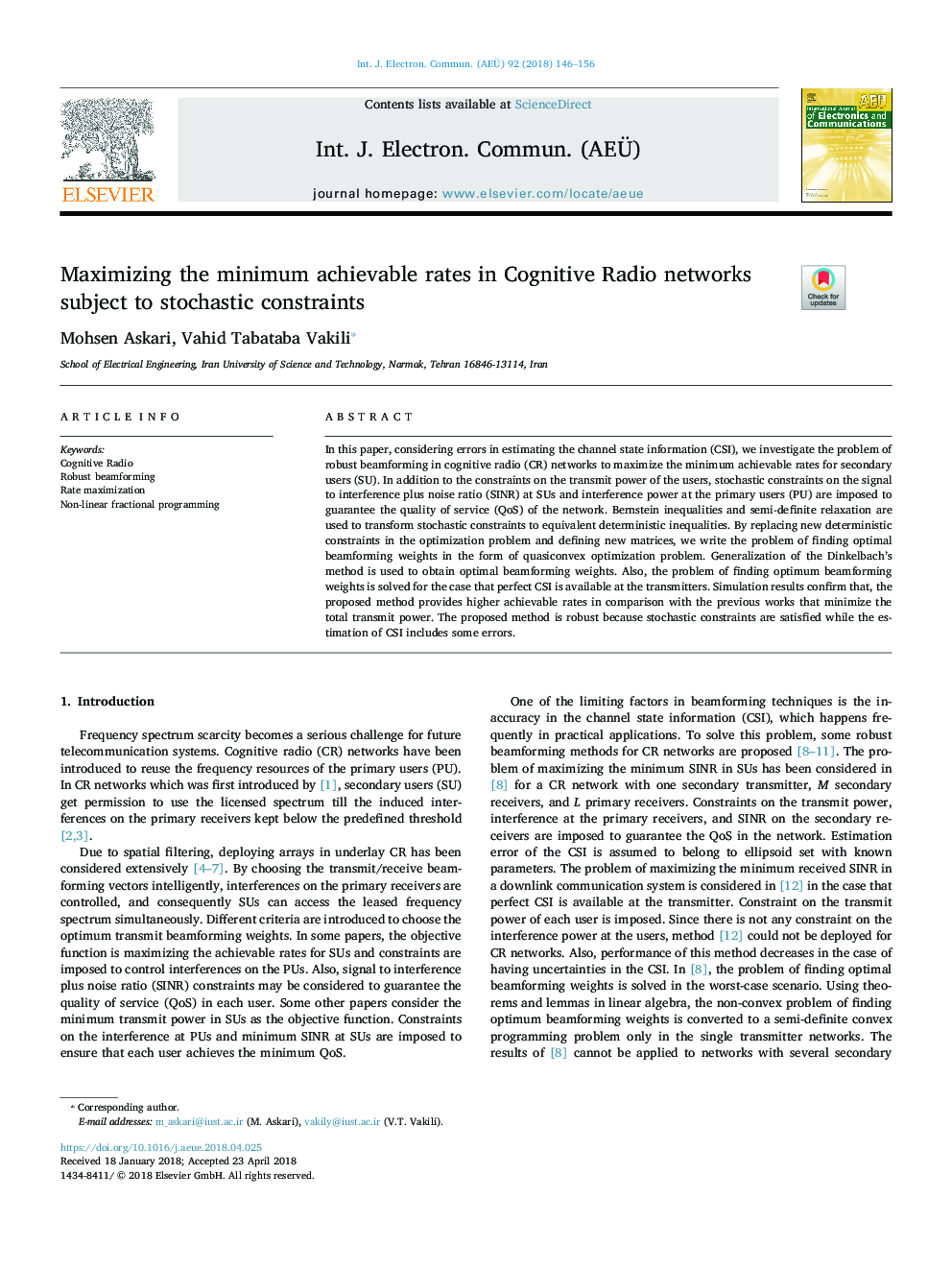| Article ID | Journal | Published Year | Pages | File Type |
|---|---|---|---|---|
| 6879113 | AEU - International Journal of Electronics and Communications | 2018 | 11 Pages |
Abstract
In this paper, considering errors in estimating the channel state information (CSI), we investigate the problem of robust beamforming in cognitive radio (CR) networks to maximize the minimum achievable rates for secondary users (SU). In addition to the constraints on the transmit power of the users, stochastic constraints on the signal to interference plus noise ratio (SINR) at SUs and interference power at the primary users (PU) are imposed to guarantee the quality of service (QoS) of the network. Bernstein inequalities and semi-definite relaxation are used to transform stochastic constraints to equivalent deterministic inequalities. By replacing new deterministic constraints in the optimization problem and defining new matrices, we write the problem of finding optimal beamforming weights in the form of quasiconvex optimization problem. Generalization of the Dinkelbach's method is used to obtain optimal beamforming weights. Also, the problem of finding optimum beamforming weights is solved for the case that perfect CSI is available at the transmitters. Simulation results confirm that, the proposed method provides higher achievable rates in comparison with the previous works that minimize the total transmit power. The proposed method is robust because stochastic constraints are satisfied while the estimation of CSI includes some errors.
Keywords
Related Topics
Physical Sciences and Engineering
Computer Science
Computer Networks and Communications
Authors
Mohsen Askari, Vahid Tabataba Vakili,
